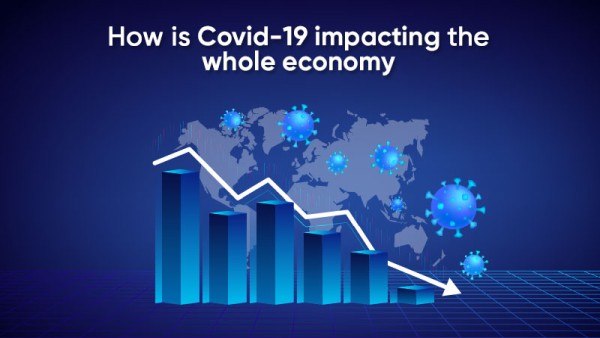In an emerging crisis, where no one can tell for sure when it will be resolved and what its long-term effect could be, the burden will be imposed unequally on the victim, on society, and on the government. And the systemic danger that affects all, as it is economic as it is biological.
How is India's condition with the COVID-19 effect?

By 11 March 2020, when the WHO declared COVID-19 a pandemic, 7.8 billion people living on the planet felt its effects. A vast majority is not in a position to support themselves. India has not progressed to a point where such ratios of humanity experiencing pain can be relieved by the state in any appreciable way.
India's internal reserves ensured that the economy was not much affected by the 2008 financial crisis, even though our GDP growth dropped from 8.5% to 6.5%. But this time, despite the pre-existing economic recession of the COVID-19 crisis, there is fear that GDP growth will fall below 4% officially.
The greatest saving grace has been technology, internet, and telecommunications that enable a lot of people to work around the globe without losing or sacrificing their own and other people's safety in their quest to keep working and the economy ticking. Even, it's just like a shield. But a lot of our economic life is still happening offline.
Experience has shown that about one-third of the economic losses would be direct costs: loss of life, work cuts and quarantine. The remaining two-thirds would be indirect, representing a decline in consumer trust and business activity and a tightening of financial markets.
It is expected that overall global economic health will be affected, especially the sectors that rely on exports, tourism, and other services, which are worse than others.
How lockdown would show its impact?
More than a month of lockdown will affect small and medium-sized businesses in particular because they will be burdened by fixed costs without a market, placing a lot of pressure on them. The challenging thing is that they are expected to pay salaries to the workers who will otherwise be in a tough situation.
The scenario is going to be challenging for developing countries such as India, which do not have effective public health systems, response capacity, and social security. Yet the roots of recovery are still part of a crisis. "If you look at the economy internationally, this is certainly a tough process and millions of jobs are going to be affected.
We need to be prepared for recovery and note the crucial lessons learned with the profound improvements that need to be made in the way we address health, both in India and globally. We can't expect economic development if public health is held back.


 CAclubindia
CAclubindia
